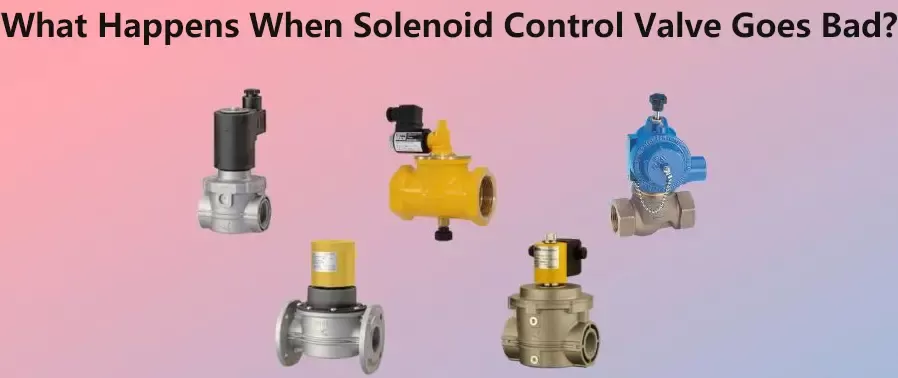Notifications

4 minutes, 5 seconds
-8 Views 0 Comments 0 Likes 0 Reviews

We are a Leading Control Valve Manufacturer in China, Delivering High-Performance Valves and Actuators Engineered to Meet a Wide Range of Industrial Applications.
Solenoid control valves are vital components across a wide range of industrial and mechanical systems—from hydraulic and pneumatic setups to HVAC units and automotive engines. Utilizing electromagnetic energy, these valves regulate fluid and gas flow with precision, ensuring smooth, efficient, and safe operations. When these valves malfunction, the repercussions can be substantial, affecting both system performance and safety.
Early detection of solenoid valve issues is key to preventing system failures and costly downtime. Common symptoms include:
Fluid Leakage
Visible leaks around the valve or within connected piping indicate compromised sealing, which can cause fluid loss, pressure drops, and environmental contamination.
Irregular Flow Patterns
Erratic or inconsistent flow suggests internal valve wear or obstruction, impairing system efficiency.
Failure to Open or Close
Valves that do not respond correctly to control signals disrupt flow regulation, causing equipment malfunction.
Excessive Noise or Vibrations
Unusual sounds or vibrations during operation may signal internal damage, misalignment, or imminent failure.
In industrial environments, solenoid valve failures can lead to:
Production Downtime: Interruptions in flow control can halt machinery, reducing output and causing financial losses.
Quality Control Issues: Flow inconsistencies may affect product quality and process stability.
Safety Hazards: Malfunctioning valves risk pressure build-up, overheating, or equipment damage, endangering personnel and facilities.
Mechanical systems such as automotive engines and HVAC units are also vulnerable:
Engine Performance: Faulty solenoid valves can cause engine misfires, reduce fuel economy, and impair emission control.
HVAC Efficiency: Valve issues may lead to inadequate temperature regulation, resulting in discomfort and higher energy costs.
Beyond operational challenges, solenoid valve malfunctions have broader implications:
Fluid Contamination: Leaks may release hazardous fluids, triggering environmental damage and regulatory penalties.
Repair and Replacement Costs: Valve failures lead to maintenance expenses and downtime-related financial impacts.
Proactive care minimizes risks and extends valve life:
Regular Inspections: Scheduled checks help detect wear, corrosion, and mechanical stress early.
Fluid Analysis: Monitoring fluid quality can reveal contaminants that affect valve performance.
Training and Awareness: Educating staff on valve operation and maintenance best practices promotes safer, more reliable systems.
Emerging technologies are enhancing solenoid valve reliability and efficiency. Advances in materials, valve design, and predictive maintenance tools—such as IoT-enabled diagnostics—offer improved durability and operational insight, paving the way for smarter, more sustainable industrial processes.
The malfunction of solenoid control valves can significantly impact industrial productivity, mechanical system performance, safety, and environmental compliance. Recognizing early warning signs, understanding the consequences, and implementing robust maintenance practices are essential to mitigating these risks.
With continued innovation and a focus on preventive care, industries can ensure optimal valve function, minimize downtime, and uphold both operational excellence and environmental responsibility.Know more about Google SEO Directory

